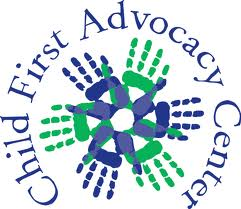During a Disclosure:
• Find a private place to talk with the child
• Do not express panic or shock
• Reassure the child that you believe them
• Do not pressure the child to tell you more than he or she is comfortable telling you
• Ask limited questions
• Listen
• Reassure the child that it is good to tell and that you are proud of them
• Reassure the child that it is not their fault and they are not bad or in trouble
• Promise the child that you will protect and support them
• If the child sees you are upset, explain you are upset with the abuser and it is not the child you are upset about.
Report the abuse immediately, call 1-800-649-5285.
After A Disclosure:
After a child has revealed abuse, you may be shocked, confused and/or angry. Regardless of what you are feeling or thinking, it is important to respond to the child appropriately.
• Remember that the child is a child, and treat her as such. Don’t expect your child to respond like an adult.
• Be supportive of the child, but do not treat them differently.
• Keep to your regular routine as much as possible.
• Children often feel a sense of relief after disclosing abuse. Support from the parent or caregiver is one of the most important factors in your child’s healing process. By offering support, you play an important role in the child’s mental and emotional health.
• Do not expect the child to appear “changed”;
• Do not question the child about the abuse; by doing so, you may jeopardize the police investigation. If the child wishes to discuss the abuse with you, just listen and be supportive;
• Be prepared for depression or “let down” weeks or months after the disclosure. The child may become withdrawn or act out repeatedly over time;
• Do not advise the child on what to do or say in a police interview beyond encouraging them to tell the truth;
• Sexually abused children may be susceptible to feelings of low self-esteem. Help the child nurture a positive sense of individual identity with positive messages;
• Explain in simple, age-appropriate terms what is happening throughout the police investigation (or as the child has questions);
• Acknowledge any feelings of anger, guilt, frustration, sadness, etc. that the child may experience. Let the child know it is okay to feel anything. Teach appropriate ways to express feelings.
• Be aware of your own reactions and get support and help as you work through your own feelings.
• Don’t discuss the abuse with others in your child’s presence.
Anyone can report suspected abuse.
Call 1-800-649-5285. If a child is in immediate danger call 9-1-1 or your local police first.
Then call the 800# above to report it to the Department for Children and Families.
What happens when I call?
A social worker will:
- Ask you questions about your concerns;
- Ask for any details you know about the child (e.g. child’s name, age, address, parents’ names etc.);
- Record the information you provide;
- Ask you to complete a written report;
- In some cases, ask you to gather more information.
What if I’m not sure whether what I suspect is abuse?
Please call us for advice. You may also want to seek our advice if you are thinking about telling the parents that you made a report. In some cases, this could endanger the child and hinder any subsequent intervention.
What happens to reports?
A supervisor evaluates each report to decide whether to accept it for intervention.
If your report is accepted, the child will be interviewed in a child friendly environment by a forensic interviewer that is specially trained to interview children in cases of abuse.
Click here to learn more about the Forensic Interview process.

